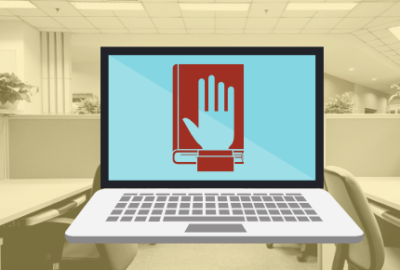
Involuntary discrimination in the workplace is a problem — let’s fix it
Joe Paiva, a retired Army officer and former CIO at the Commerce Department’s International Trade Administration, offers federal and industry executives some...
Two years ago, I retired after a 30-year career split evenly between the military, government service and private industry. Those who know me best will say that I had my fair share of faults, but intentional bigotry was not one of them.
However, the reality is that for 30 years I acted in ways that helped to systematically deny opportunities to good, hard working people based on where they lived, what schools they attended, the quality of their grammar and several other factors, that, by extension, all equal what they looked like. I was, in fact, an accidental racist.
When I first got out of the military and went into private industry, I helped start and manage multiple companies. Between that and my time in government, I hired hundreds of people, and, despite all the controls that theoretically prevent it, I know from experience that I made the same mistakes in government that I did in private industry.
- I never thought twice about placing my private companies’ offices in the same white suburbs where I lived. As a member of the Senior Executive Service (SES), I required many government and contractor positions that could have easily been remote to be on site. I was completely oblivious to the impact office locations and geography have on diversity.
- In private sector, I routinely hired friends of friends and neighbors’ children. In government, we routinely hired people with great references or who worked with someone we knew at another department without ever recognizing that we were limiting the candidate pool in a way that severely limited the opportunities for brown or black people to work at the agencies and companies I led.
- I allowed my government staff to close positions quickly in an effort to limit the number of applicants (sometimes because there was an in-house candidate we really wanted to hire or promote). I did it never realizing that by closing positions quickly I was effectively restricting the opportunity to apply to a group of “insiders” that were disproportionately not people of color.
- I saw resumes with the name of a school some of my friends or staff attended and moved them to the top of the stack without ever realizing I had just overlooked potentially fantastic historically black colleges and universities (HBCU) graduates for no reason whatsoever.
- At Commerce, we had unpaid graduate internships not just in DC, but all over the world. I would notice a recent graduates had done an unpaid (or essentially unpaid) internship with ITA, another agency or a respected think tank, and brought them to the top of the pile without considering that anybody whose parents aren’t millionaires could never afford to spend a summer working in DC (Paris or London) without pay.
- Even in government, I asked candidates questions my staff and I created without any professional review for validity or bias. Worse yet, I frequently branched off into small talk about shared interests or experiences immune to the notion that unvalidated interview questions often wreak of unintentional bias and that placing candidates with shared interests at ease was unfair to others.
Looking back at it now, I realize how wrong all of these things were. I realize that I effectively denied people of color the ability to compete on a level playing field for jobs in my companies and the government organizations I led.
We will never solve the problem of unequal justice in America, if we do not first correct the economic disparities that inevitably lead to that inequity, and the conflict and violence it precipitates. As long as a subset of people are economically disenfranchised by a system that does not provide for the basic needs of all people, regardless of what they look like, who they love, how or if they choose to pray, or any other individual attribute that makes them the unique and wonderful person God created, we will never truly fix any of the problems we see exploding throughout our country, and we will never live up to our truest potential as a people.
The first critical step in creating a society with less economic disparity is to create a society with equal economic opportunity, and every decision you make as an executive has an impact on how equal those opportunities are within your organization. Looking at it now, I realize I failed miserably on this account, and nothing I do will ever make it right. However, what I can do now is publicly apologize in a way that shines a light on my misdeeds as an example for younger executives following in my path.
So, this is my message: Take a hard look at how you make selections, not just for initial hires, but for promotions, career development programs, special training, etc. Thoroughly review every step in your process asking yourself: How can I remove systemic and unconscious bias from this process?
- Is the position being advertised broadly enough to ensure people “outside the bubble” have an opportunity to find out about it and apply? Is it being advertised in media outlets that focus on serving minorities?
- Is human resources intentionally cutting off how long a job is “open” in order to limit the number of candidates who apply (for any reason)?
- Does this job truly, absolutely need to be filled by someone on site, or can it really be done remotely?
- Did your organization take the time and effort to perform a real job analysis and develop an up to date job description with valid requirements? Or, did you just default to some decades old, stock position description because it was easier than doing the paperwork to get a new one approved?
- Does somebody really need a degree to be successful in this job? A computer engineering degree does not make someone a better JavaScript writer, and neither Steve Jobs or Bill Gates had degrees when they started Apple and Microsoft.
- Are you screening out great (frequently, minority or rural) candidates using resumes, which we have known for decades are one of the most biased and least accurate ways in the world to assess job applicants?
- Are your evaluators inadvertently looking at people’s home addresses, and subconsciously wondering how good or bad their commute would be?
- Have the questions you are asking been reviewed by an industrial and organization psychologist to ensure they elicit responses that can actually be used to accurately assess whether or not someone is qualified?
- Have your questions been professionally reviewed to ensure they don’t introduce unintended bias?
- Is every candidate getting asked the exact same question, the exact same way, and getting the exact same amount of time to answer it?
- Are you or your staff unwittingly introducing bias by making small talk about what college a candidate attended, their time in the military, what sports they played, or what teams they like?
We can’t all play a direct role in fixing every problem our country faces, but many of us play a much bigger part than we think in either maintaining or changing the underlying economic disparity that leads to most of those problems.
Don’t be an accidental racist. Do your part now by fixing your organization’s hiring, program and promotion selection processes.
Joe Paiva enlisted in the Navy after high school and served 10 years active duty and 25 years in the reserves before retiring as a lieutenant colonel. Paiva started and helped start more than half a dozen companies, including taking one public. Serving in senior leadership positions during both the Bush and Obama administrations, Paiva retired as CIO of the Department of Commerce’s International Trade Administration.
Copyright © 2025 Federal News Network. All rights reserved. This website is not intended for users located within the European Economic Area.
Joe Paiva is a retired software industry executive best known for helping to start, grow, buy and sell tech companies. He also served as both an Army Reservist and a senior federal civilian leader in the departments of Defense, Veterans Affairs and Commerce.
Related Stories




